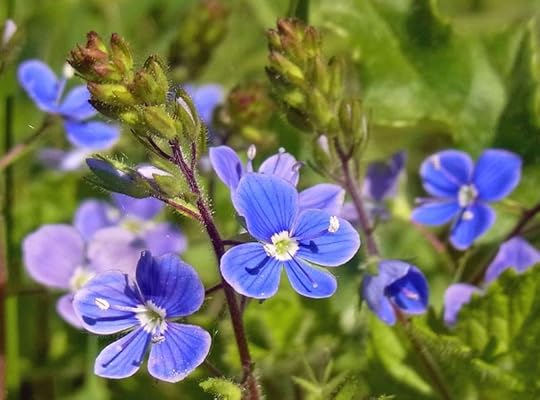What do you think?
Rate this book


246 pages, Paperback
First published September 1, 1917


'The strength of the ancient laws of earth...' (p.70)
'Hazel had her mother's eyes, strange, fawn-coloured eyes like water, and in the large clear irises were tawny flecks. In their shy honesty they were akin to the little fox's. Her hair, too, of a richer colour than her father's, was tawny and foxlike, and her ways were graceful and covert as a wild creature's.' (p.13)
'In the summer white lilies haunted it, standing out in the dusk with their demure cajolery, looking, as Hazel said, like ghosses. Goldenrod foamed round the cottage, deeply embowering it, and the lavender made a grey mist beside the red quarries of the path. Then Hazel sat like a queen in a regalia of flowers, eating the piece of bread and honey that made her dinner, covering her face with lily pollen.' (p.19)
'Both men saw her as what they wanted her to be, not as she was.' (p.125)
'Hazel, in the fields and woods, enjoyed it all so much that she walked in a mystical exaltation. Reddin in the fields and woods enjoyed himself only. For he took his own atmosphere with him wherever he went, and before his footsteps weakness fled and beauty folded.' (p.164)
'... during each meeting with him she had been more perturbed. His personality dragged at hers. Already he was stronger than her fugitive impulses, her wilding reserve. He was like a hand tearing open a triplet of sorrel leaves folded for rain, so strong in their impulse for self-protection that they could only be conquered by destruction. She was afraid of him, yet days without him were saltless food. There was a ruthlessness about him - the male instinct unaccompanied by humility; the patrician instinct unaccompanied by sympathy; the sportsman's instinct unaccompanied by pity. Whatever he began he would finish.' (p.174)
'A power was on Hazel now, driving her against the one instinct of her life hitherto - the wild creature's instinct for flight and preservation. (p. 170).
'He spoke with a quite unconscious brutality; he voiced the theory of his class and his political party, which tacitly or openly asserted that woman, servants and animals were in the world for their benefit.' (p.211).